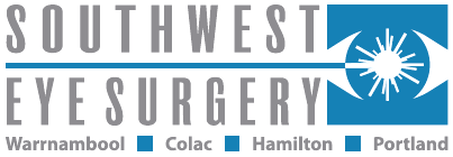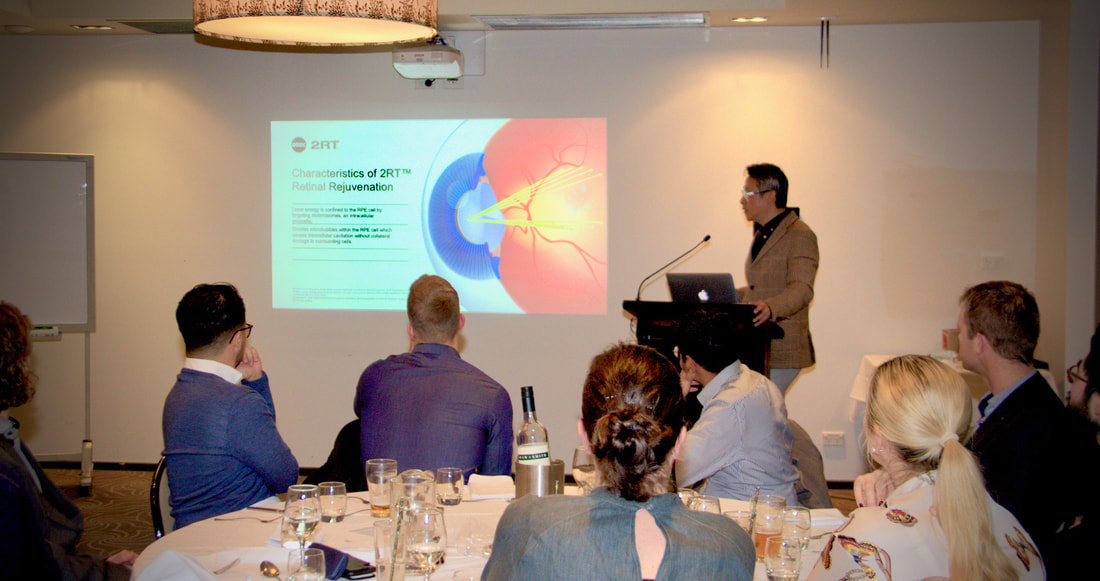|
It was a privilege and a pleasure to host the Warrnambool Winter Symposium on the 22nd of August 2019. A gathering of 20 regional optometrists (representing all the Optometry practices in the Southwest and Western Districts of Victoria), clinical staff and industry representatives assembled for a cosy dinner on a cold August evening, at the Lady Bay Hotel Warrnambool, to hear about the latest developments in treatment of Age-related Macular Degeneration (or AMD, as well as Diabetic Macular Oedema and Retinal Vein Occlusions) and Refractive Surgery. The meeting was approved for 2 CPD points by Optometry Australia. Symposium attendees were brought up to date with the imminent arrival of more efficient, quicker and longer acting antiVEGF drugs, as well as slow release devices which promise less frequent visits to the ophthalmologists rooms for ongoing treatment. The advent of modern antiVEGF treatment has made possible rapid gains in vision in diseases resulting in swelling of the macula. This treatment is able to maintain visual improvement indefinitely in the vast majority of patients. However a commitment to ongoing therapy is required creating a heavy burden on patients, carers, eye practitioners and the heath care system. I discussed some of the current research in AMD, which now centres around methods of reducing the burden of treatment (which involves repeat visits for eye injections).
I was also delighted to present recently released research data about 2RT (Retinal Rejuvenation Therapy), one of the more exciting developments to emerge in the last 12 months. This new sub-threshold nanosecond laser treatment can reduce or even potentially eliminate the need for eye injections. Attendees were interested to learn about the recently published results of the LEAD Study which showed a decrease in the progression of Dry AMD after treatment with 2RT laser in the majority of patients with AMD. Although not all patients with AMD are suitable for this treatment, the majority of those with intermediate dry AMD, without more severe retinal changes, are nearly 80% less likely to advance to the late stages of AMD, including wet AMD. While we look forward to the arrival, late next year and beyond, of more efficient therapies to reduce the burden of ongoing eye injections for wet AMD, sub threshold restorative nanosecond laser in the form of 2RT is now available in South West Victoria and many patients have availed themselves of this therapy, since its introduction in April 2019 On a different note (and over dessert), I presented symposium delegates with information about 2 new refractive surgery options now available locally, that free patients from having to wear glasses, contact lenses or spectacles. The Intraocular Collamer Lens (ICL), also known as the Intraocular Contact Lens or Phakic Intraocular Lens - a thin lens inserted into the eyes of younger people - has had the benefit of many years of development. It was recently implanted, for the first time in South West Victoria - this patient now no longer needs to wear the thick spectacles she has worn since she was a young girl. While laser operatio,ns like LASIK and PRK have been used in the past, ICL surgery has distinct advantages, the most important of which are the increased quality of vision and reversibility of the procedure (the implant can be removed and/ or replaced, though this is hardly ever needed). Finally, I introduced the audience to the IC-8 - a new small aperture lens implant that improves depth of focus over conventional multifocal lenses used in cataract surgery. The IC-8 increases contrast sensitivity and reduces glare symptoms, yet allows patients to enjoy a smooth transition of vision in the near to intermediate range. It can be more confidently used in individuals who have previously had laser refractive surgery (such as LASIK and PRK) in whom conventional multifocal lenses can prove problematic. For further information regarding some of the topics above, click the links below:
1 Comment
21/10/2019 11:31:05 pm
In my point of view, it is a great way to teach or share your thoughts among employees of your organization. I want to inform the author that he has done an extraordinary job of writing this informative article. I admire you for such kindness.
Reply
Your comment will be posted after it is approved.
Leave a Reply. |
AuthorDr Vincent Lee, Archives
April 2020
Categories
All
|
Proudly powered by Weebly



 RSS Feed
RSS Feed